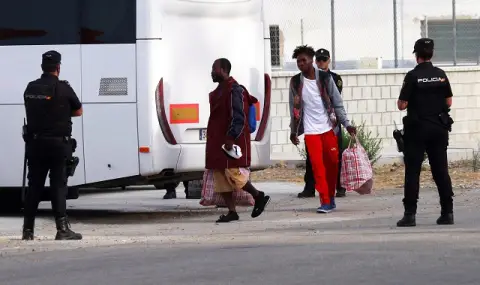German government unveils implementation plan of stricter European asylum rules, reports "Reuters".
This would make access to the country more difficult. The decision comes a day after Germany announced that it would begin controlling all of its land borders.
The proposals include detaining asylum seekers while authorities determine whether Germany is responsible for processing their case using the common European fingerprint database Eurodac, among other tools, Interior Minister Nancy Feiser explained.
"We want people whose asylum procedure is the responsibility of another EU country to be returned there,", she emphasized.
The measures reflect Germany's hardened stance on immigration as a result of the large number of asylum-seeker arrivals from both the Middle East and Ukraine. However, this may strain its relations with other European countries.
"We will approach our European partners at a high political level to ensure that they give their approval for readmission back to the respective countries more quickly so that European rules are respected," Feiser noted.
/p>
However, Polish Prime Minister Donald Tusk yesterday criticized Germany's stricter border controls and called for urgent consultations with other affected countries, as well as more support for Warsaw's own immigration policy.
In a televised debate ahead of Austria's parliamentary election on September 29, Chancellor Karl Nehammer said that if Germany introduced measures to turn more migrants back across their common border, Austria would do the same by sending more people east to the Balkans.< /p>
Chancellor Olaf Scholz's centre-left government developed the proposals for faster waivers as part of talks with the opposition conservatives, which broke down yesterday.
However, Scholz's tripartite coalition does not necessarily need the approval of the conservatives to push through the proposals, which must also be discussed with regional authorities before they are implemented.
Berlin says it needs to tackle illegal migration due to overburdened public services and protect society from threats such as Islamic extremism.
Recent deadly knife attacks in which the suspects were migrants have raised concerns about immigration. The group "Islamic State" claimed responsibility for a knife attack in the city of Solingen in August, in which three people were killed.
Mainstream parties are seeking to wrest the initiative from the far-right Alternative for Germany, which has bought into concerns about migration and seen a surge in support in recent years.
AzG became the first far-right party in Germany to win a provincial election since World War II in Thuringia on September 1.
